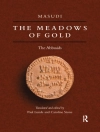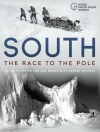Essays bringing out the crucial importance of philology for understanding Old English texts.
Robert D. Fulk is arguably the greatest Old English philologist to emerge during the twentieth century; his corpus of scholarship has fundamentally shaped contemporary understanding of many aspects of Anglo-Saxon literary historyand English historical linguistics.
This volume, in his honour, brings together essays which engage with his work and advance his research interests. Scholarship on historical metrics and the dating, editing, and interpretation of Old English poetry thus forms the core of this book; other topics addressed include syntax, phonology, etymology, lexicology, and paleography. An introductory overview of Professor Fulk’s achievements puts these studies in context, alongside essays which assess his contributions to metrical theory and his profound impact on the study of
Beowulf. By consolidating and augmenting Fulk’s research, this collection takes readers to the cutting edgeof Old English philology.
LEONARD NEIDORF is Professor of English at Nanjing University; RAFAEL J. PASCUAL is a Postdoctoral Research Fellow at Harvard University; TOM SHIPPEY is Professor Emeritus at St Louis University.
Contributors: Thomas Cable, Christopher M. Cain, George Clark, Dennis Cronan, Daniel Donoghue, Aaron Ecay, Mark Griffith, Megan E. Hartman, Stefan Jurasinski, Anatoly Liberman, Donka Minkova, Haruko Momma, Rory Naismith, Leonard Neidorf, Andy Orchard, Rafael J. Pascual, Susan Pintzuk, Geoffrey Russom, Tom Shippey, Jun Terasawa, Charles D. Wright.
Spis treści
Introduction: R.D. Fulk and the Progress of Philology – Leonard Neidorf
Sievers, Bliss, Fulk, and Old English Metrical Theory – Rafael J. Pascual
Ictus as Stress or Length: The Effect of – Thomas Cable
Metrical Criteria for the Emendation of Old English Poetic Texts – Leonard Neidorf
The Suppression of the Subjunctive in
Beowulf: A Metrical Explanation – Jun Terasawa
Metrical Complexity and Verse Placement in
Beowulf – Geoffrey Russom
Alliterating Finite Verbs and the Origin of Rank in Old English Poetry – Mark Griffith
Prosody-Meter Correspondences in Late Old English and
Poema Morale – Donka Minkova
The Syntax of Old English Poetry and the Dating of
Beowulf – Aaron Ecay and Susan Pintzuk
The Anglo-Saxons and
Superbia: Finding a Word for it – George Clark
Old English
gelome,
geloma, Modern English
loom,
lame, and Their Kin – Anatoly Liberman
Worm: A Lexical Approach to the
Beowulf Manuscript –
Wulfstan, Episcopal Authority, and the
Handbook for the Use of a Confessor – Stefan Jursinski
Some Observations on
e-caudata in Old English Texts (355-386) – Christopher M. Cain
The Poetics of Poetic Words in Old English – Dennis Cronan
Dream of the Rood 9b: A Cross as an Angel? –
The Fate of Lot’s Wife: A 'Canterbury School’ Gloss in
Genesis A – Charles D Wright
Metrical Alternation in
The Fortunes of Men – Megan E. Hartman
The Originality of
Andreas – Andy Orchard
The Economy of
Beowulf – Rory Naismith
Beowulf Studies from Tolkien to Fulk – Tom Shippey
The Writings of R.D. Fulk












